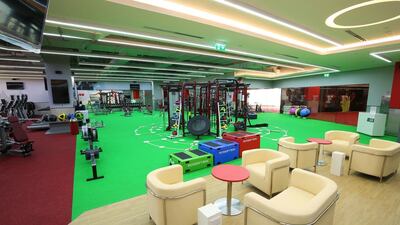The installation of security cameras in men's changing areas at Fitness First Middle East's gym network has sparked anger and restarted the debate over privacy and security. As The National reported yesterday, members of the Ibn Battuta Mall branch – one of 34 branches in the UAE – questioned the motives behind such a move and expressed legitimate concerns over their privacy.
There has been no formal statement from the company on the matter. But it used its official Twitter account to respond to members’ concerns about the new policy, saying that the decision to instal CCTV – in the reception areas, male changing rooms and on the gym floor – followed consultation with the relevant authorities. It said the camera had been installed to protect members and staff viewed footage only if required and deleted it after 30 days.
While a security camera system can indeed be useful to keep members, staff and company facilities safe from vandalism, theft and possible violence, protecting privacy is also important. In most gyms around the world, CCTV cameras are installed only in public areas. However, this rule can be waived in exceptional circumstances or to deal with serious concerns. In such cases, the operator is required take extra care to ensure that members are aware that the cameras are in use.
While Fitness First Middle East has put up notices next to existing signs discouraging nudity, it hasn’t really explained the driving factors behind its new policy, and this created confusion for many members. We would recommend companies clearly explain to their customers why they are deploying CCTV cameras and for what purpose.
The question also remains whether it is acceptable to use CCTV cameras in changing rooms. And shouldn’t men be entitled to the same right to privacy as women?
The proliferation of CCTV cameras has been an issue of concern all over the world. There is no doubt that when they are used in the right context, CCTV cameras have an important role to play in preventing crime happening in the first place and, indeed, in apprehending criminals. However, when they are used they do raise questions about who has access to the data a camera records and for how long. It is incumbent on private companies to explain their policies to their customers.

